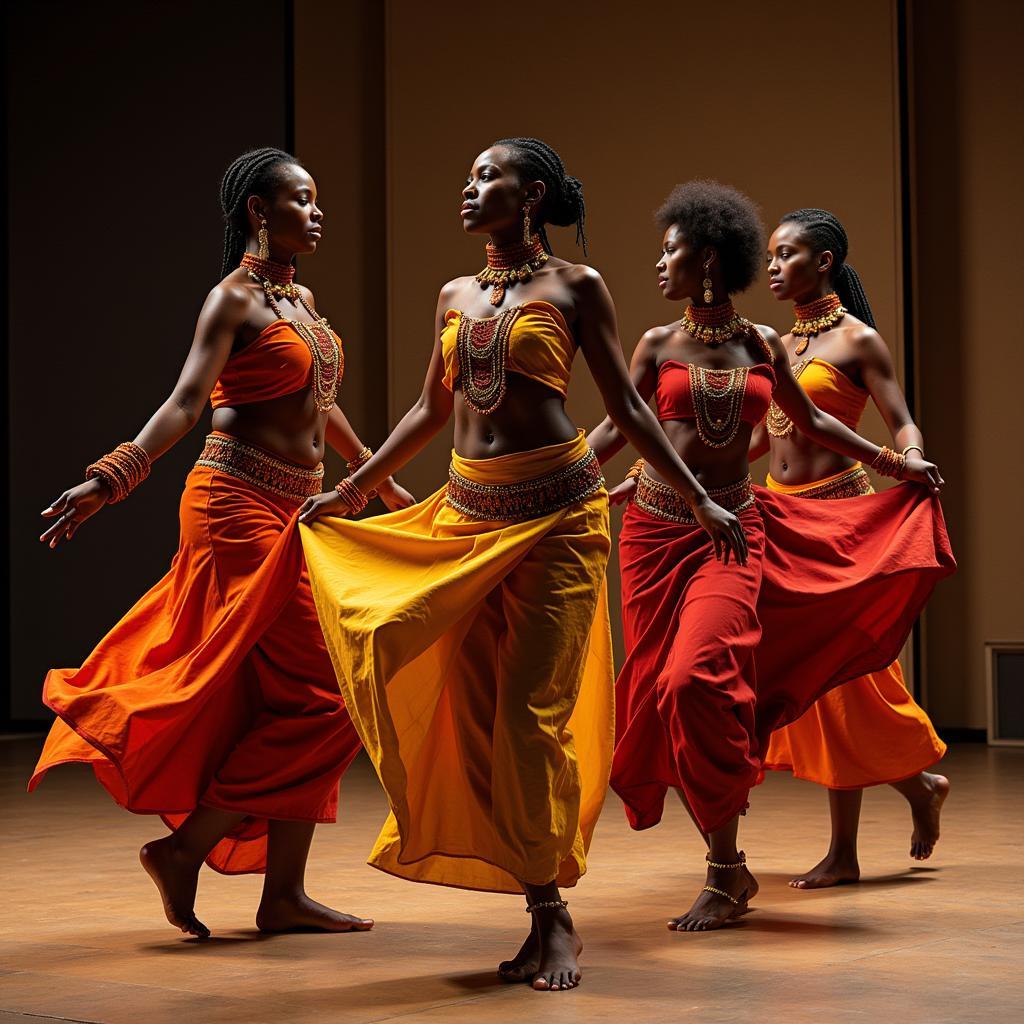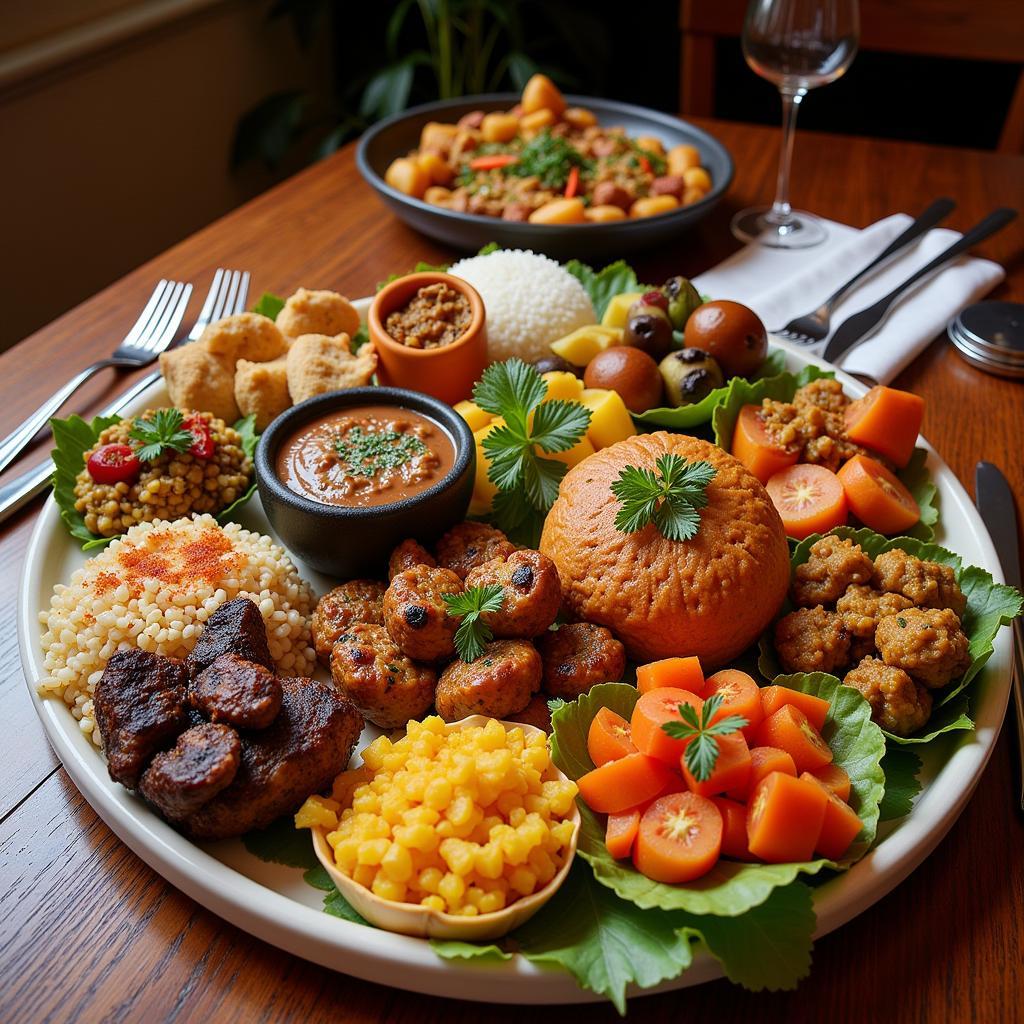Shining a Light on Influential African American Entertainers
African American Entertainers have profoundly shaped global entertainment, leaving an undeniable mark on music, film, television, and theater. From the soulful rhythms of the blues to the electrifying energy of hip-hop, their contributions have captivated audiences worldwide and broken down barriers. This article delves into the rich history and ongoing impact of these talented individuals, celebrating their achievements and exploring their enduring legacy.
The Pioneers of African American Entertainment
The early 20th century witnessed the rise of groundbreaking artists who paved the way for future generations. Figures like Bessie Smith, known as the “Empress of the Blues,” captivated audiences with her powerful vocals and emotional depth. Similarly, Louis Armstrong’s revolutionary trumpet playing and charismatic stage presence redefined jazz music, earning him international acclaim. These artists, often facing immense prejudice and discrimination, persevered to become iconic figures, inspiring countless others to pursue their artistic dreams.
African American entertainers not only excelled in music but also made significant strides in other forms of entertainment. African american celebrities have made notable contributions to various fields. Paul Robeson, a renowned actor and singer, became a symbol of black excellence and social activism, challenging racial stereotypes and advocating for human rights.
“The struggle for recognition was a constant battle,” reflects Dr. Aisha Williams, a historian specializing in African American cultural history. “But their talent and determination shone through, ultimately transforming the landscape of entertainment.”
From Motown to Hip-Hop: A Musical Revolution
The mid-20th century brought forth another wave of influential African American entertainers. Motown Records, founded by Berry Gordy Jr., became a powerhouse of soul music, launching the careers of legendary artists like The Supremes, Marvin Gaye, and Stevie Wonder. Their infectious melodies and socially conscious lyrics resonated with a global audience, shaping the sound of a generation.
The late 20th century saw the emergence of hip-hop, a genre born from the streets of New York City. Pioneering artists like Run-DMC, Public Enemy, and Salt-N-Pepa used their music to express social commentary and tell stories of urban life. Hip-hop’s influence quickly spread, becoming a dominant force in popular culture. You might find some parallels with other music scenes, such as the african female singers making waves in the music industry.
African American Entertainers on the Silver Screen
African American actors have also made significant contributions to the film industry. Sidney Poitier broke barriers in Hollywood, becoming the first black actor to win an Academy Award for Best Actor. His powerful performances challenged racial stereotypes and paved the way for greater diversity in film. More recently, actors like Denzel Washington, Viola Davis, and Mahershala Ali have continued to push boundaries and achieve critical acclaim, demonstrating the ongoing impact of African American talent in cinema.
The Legacy Continues
Today, African American entertainers continue to shape the world of entertainment. From Beyoncé’s electrifying performances to the comedic genius of Kevin Hart, their influence is undeniable. They not only entertain but also inspire, using their platforms to address social issues and advocate for change.
“African American entertainers have not only enriched the world with their talent but have also used their voices to amplify important conversations,” notes Dr. Kwame Nkrumah, a cultural critic and author. “Their legacy is one of resilience, creativity, and social impact.” For instance, it is fascinating to see the cultural connections between seemingly disparate communities, like the exploration of african american norsk heritage.
Conclusion
African American entertainers have made an indelible mark on global culture. Their contributions to music, film, television, and theater have not only entertained millions but have also challenged social norms and inspired generations. Their legacy continues to shape the world of entertainment, ensuring that their voices and stories are heard for years to come. It’s also worth exploring the younger generation of talent, like the promising african actresses under 25 who are making their mark in the industry. Sadly, we’ve also lost some incredible talents along the way, as exemplified by the african actors who died in 2017.
FAQ
- Who was the first African American to win an Oscar for Best Actor? Sidney Poitier.
- What is Motown Records known for? Launching the careers of many famous soul artists.
- Who is considered the “Empress of the Blues”? Bessie Smith.
- What role did African American entertainers play in the Civil Rights Movement? They often used their platform to advocate for equality and social change.
- What is the significance of hip-hop in African American culture? It provided a powerful voice for urban communities and social commentary.
- How have African American entertainers broken barriers in Hollywood? By achieving critical acclaim and taking on diverse roles, they’ve challenged stereotypes and broadened representation.
- Where can I learn more about the history of African American entertainment? Numerous books, documentaries, and museums explore this rich history.
When you need assistance, please contact us at Phone Number: +255768904061, Email: kaka.mag@gmail.com or visit our address: Mbarali DC Mawindi, Kangaga, Tanzania. We have a 24/7 customer service team.



